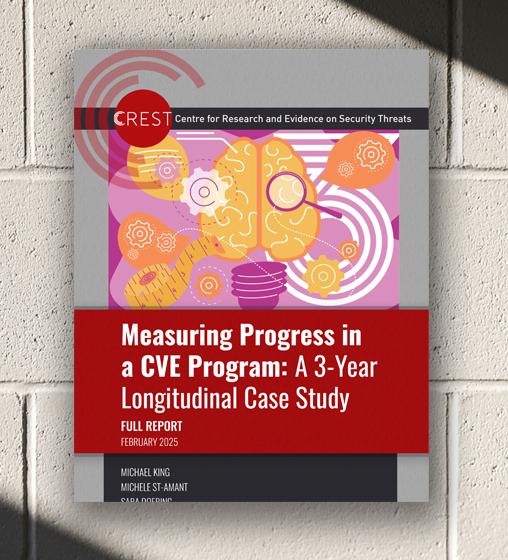A Comparative Analysis for a Deeper Understanding of the Fluid Movement.
Publication Date: October 2025
Executive Summary
This report presents an analysis of sovereignism and anti-authority extremism in two national contexts: Canada and Germany. Despite differing historical and legal frameworks, sovereignist and anti-authority groups and movements in both countries reflect a shared rejection of state legitimacy and authority structures. Through a comparative analysis, we identify common characteristics that contribute to a unified understanding of sovereignism and anti-authority extremism.
In this report, we map the landscape and dynamics of the groups and movements who espouse sovereignism and anti-authority extremism, outline their ideological foundations, and explore the intersecting narratives that shape them. The report also investigates possible motivations for individual involvement, and the obstacles and factors that influence distancing oneself from
sovereignism and anti-authority extremism. In addition, we assess the risks and threats these movements pose, both to society and loved ones, and to the adherents themselves.
Our findings are based on a mixed-methods research approach that draws on insights from expert interviews, as well as the perspectives of individuals who hold these beliefs, an analysis of social media content, and a survey of individuals who have friends and family who espouse
these beliefs.
Defining Characteristics of Sovereignism and Anti-Authority Extremism
Our comparative analysis identified several defining characteristics of this cross-contextual phenomenon:
• Illegitimacy and Distrust in Government and Its Institutions: A pervasive belief that governments and institutions are illegitimate, corrupt or oppressive, often grounded in personal grievances and reinforced through conspiracy narratives.
• Ideological Flexibility: These beliefs are not tied to any one political affiliation, which makes
them adaptable and appealing across a wide range of contexts. These beliefs frequently
intersect with far-right ideologies, conspiracy thinking, and spiritual or esoteric narratives.
• Conspiracy Beliefs as a Cornerstone: Conspiracy beliefs serve as both a foundation and a unifying framework, connecting various grievances and legitimizing opposition to current
government and authorities.
• Decentralization and Fragmentation of the Movement: The movement is highly decentralized and ideologically fluid, yet increasingly networked online, particularly during periods of crisis like the COVID-19 pandemic.
• Social Media as a Catalyst: Digital platforms are central for spreading ideas, fostering
connections, and organizing without the need for traditional groups or leadership structures.
• Instrumentalization of Events: Actors exploit political and social events to validate their beliefs, spread misinformation, and recruit followers during crises and times of uncertainty.
• Pseudolegal Tactics and Strategies: Adherents often use pseudolegal strategies to challenge authority, presenting these concepts as legitimate legal interpretations, despite consistent rejection by the legal system.
• Overlooked Personal Harm: Involvement in the movement often leads to significant psychological, financial, and social harm to those involved, with adverse effects also extending to their families and communities.
• Lack of Distancing: There are few known instances of individuals who have distanced themselves from the ideology, as it often becomes a central part of their identity. Distancing is more likely when individuals face disillusionment or personal loss, and when support from close contacts or psychosocial professionals is available.
This report highlights the need for a broader understanding of sovereignist and anti-authority
extremism as a fluid, transnational phenomenon with a set of shared characteristics. Future research should expand this comparative approach to include additional national contexts and support interdisciplinary efforts to mitigate both the societal and individual impacts of this growing movement.
Powered By EmbedPress



